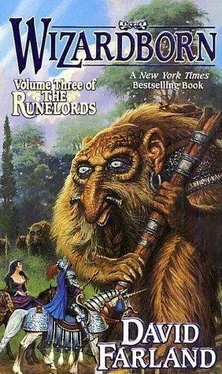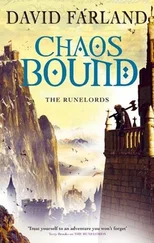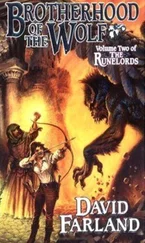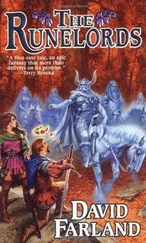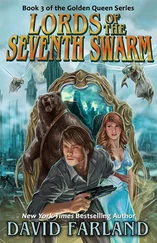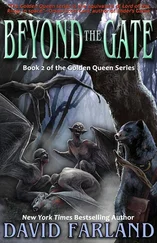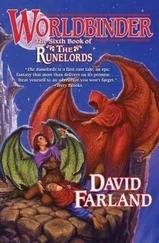David Farland - Wizardborn
Здесь есть возможность читать онлайн «David Farland - Wizardborn» весь текст электронной книги совершенно бесплатно (целиком полную версию без сокращений). В некоторых случаях можно слушать аудио, скачать через торрент в формате fb2 и присутствует краткое содержание. Жанр: Фэнтези, на английском языке. Описание произведения, (предисловие) а так же отзывы посетителей доступны на портале библиотеки ЛибКат.
- Название:Wizardborn
- Автор:
- Жанр:
- Год:неизвестен
- ISBN:нет данных
- Рейтинг книги:5 / 5. Голосов: 1
-
Избранное:Добавить в избранное
- Отзывы:
-
Ваша оценка:
- 100
- 1
- 2
- 3
- 4
- 5
Wizardborn: краткое содержание, описание и аннотация
Предлагаем к чтению аннотацию, описание, краткое содержание или предисловие (зависит от того, что написал сам автор книги «Wizardborn»). Если вы не нашли необходимую информацию о книге — напишите в комментариях, мы постараемся отыскать её.
Wizardborn — читать онлайн бесплатно полную книгу (весь текст) целиком
Ниже представлен текст книги, разбитый по страницам. Система сохранения места последней прочитанной страницы, позволяет с удобством читать онлайн бесплатно книгу «Wizardborn», без необходимости каждый раз заново искать на чём Вы остановились. Поставьте закладку, и сможете в любой момент перейти на страницу, на которой закончили чтение.
Интервал:
Закладка:
The sign above the inn was gorgeously carved to show travelers on their journey. The sign itself named the place as the Loaf and Brew.
Binnesman’s shouting soon drew every shopkeeper in town. The mayor of Shrewsvale owned the inn. He rang the city bell.
Averan said little, only nodded vigorously to second Binnesman’s warnings. She caught the eyes of a dark-haired girl who held a doll woven of reeds in one hand, and the chubby fist of her little brother in the other.
The girl could not have been seven years old, and Averan suddenly realized that in the next hour she’d face terrors that many a graybeard had never met.
They left Shrewsvale and raced along the dirt road through village after village. Binnesman stopped in each hamlet, relating his tale. At every stop, the village bells began to ring, so that one could listen to the path that they followed. With each stop, the people were already gathering, waiting for the news.
They were only halfway between Shrewsvale and Feldonshire proper when Gaborn’s messengers passed them on the road.
By the time they reached the city, the bells were already ringing out in warning. Word of the attack had raced ahead.
People scattered to and fro in the streets. Horses whinnied and snorted and pranced with ears back and nostrils flaring. They could smell their masters’ terror. Eight miles to the west, smoke could be seen rising from the hills.
Averan imagined that Gaborn had already set fire to the woods at Shrewsvale.
The citizens of Feldonshire fled from their shops and cottages, and became a steady stream, heading north out of town, across the bridge that spanned the Donnestgree.
Peasants in plain hooded frocks ran along with all their belongings stuffed into tote sacks made by trying four corners of a sheet together. Farmers thundered away in wagons filled with grimy children. A wealthy merchant rode through town with his family in a carriage, shouting in his hurry and snapping his whip over the heads of anyone who dared to hinder his escape.
Commoners all. Without force horses or endowments, they would travel slowly. Worse, they were taking time to pack their things. Husbands at work in their shops had to run about fetching children. There was food to gather, belongings to save.
Loaded under the weight of their goods, the peasants would not be able to run fast or far.
Already the bridge was turning into a bottleneck.
Worst of all, on the banks of the Donnestgree camped thousands of wounded refugees from Carris. The tents lining the river were a city to themselves, and the wounded lay attended by their healers. Fires hugged the riverbank, and most of the cooking pots there were not for food, but for boiling the dressings for wounds. Rags and cloths were draped over every bush to dry.
Averan had never seen a sickyard, as the soldiers called them, where the battle-torn lay in the open air like this. Between the drying bandages and the gray canvas tents, and smoke smudging everything, the sickyard looked like a city formed from rags.
Most of the wounded were heavily bandaged. Few could yet rise or walk on their own, and their was no way to move them easily. The boats that had brought them downstream had all departed—returned north for another load.
Evacuating these people on foot was not something that could be done in hours. It was a labor that would take days.
They knew what would happen.
Wounded men and women cried out in terror and pain. Pleas of “Help me! Help!” and “Have mercy!” rose from dozens of throats, adding to the general din of people scurrying for shelter.
Some invalids climbed to their feet in heroic efforts, and staggered across the bridge. They shuffled slowly, blocking the exit for those who followed. Staves or canes might have helped speed many of them, but every stick along the riverbank had already been salvaged. Two men dressed in the bright red of the City Guard stood on the bridge, pleading with everyone. “Help the wounded. Grab someone and help him across! There’s plenty of time!”
But everyone knew that time was far too short.
Among the rows of tents, healers and townsfolk sought to save many of the injured. Wains from farmhouses lined the river roads. But the healers were taking only the children and the women, the vast minority of the wounded, leaving the men to die.
She saw one fellow nearby lying on a cot before his tent, curled into a fetal position, merely waiting.
She recalled Gaborn’s words last night. He’d tried to tell her that men did most of the dying in this world, that they wore themselves out. She hadn’t wanted to believe it. Now she saw the proof of it, and wondered how it would be.
As Binnesman rode up to the woodcarvers’ guildhall, Averan sat on her white mare and stared down at the men, and felt the most profound pity and sense of desolation.
I’m not like them anymore, she realized. Her horse could carry her away fast. She didn’t feel their terror, felt only pity.
Once, when Averan was small, Brand had picked up an old door that lay in a field below the graaks’ aerie back at Keep Haberd. Averan had seen a family of mice scurry about in a panic, blinded by the sunshine.
Three generations of mice lived there—a mother and five children, along with six little pink babes. Neither Averan nor Brand meant the mice any harm. Yet they watched them scurry in panic for a moment, before setting down the door.
That’s how Averan felt now, distanced from the turmoil, high and above it all. Yet the loud noises and confusion made Binnesman’s wylde jumpy. The green woman’s eyes darted this way and that, and she flinched at every nearby noise, as if she were a caged fox just captured from a field.
Binnesman had come to the guildhall to speak to the officials. He dismounted, saying, “Watch the horses while I speak to Guildmaster Wallachs.” Wallachs was more than just the guildmaster of the woodcarvers here in Feldonshire. He served as mayor of the city, and though he had no endowments, his people held him in as high estimation as if he were a lord.
Binnesman led his spooked wylde into the guildhall. Averan held the reins to the mounts, sat alone outside.
The guildhall of the woodcarvers dominated the center of Feldonshire. The massive building was an advertisement for the guild’s wares. It stood five stories high and was made of finely cut multicolored stone set in mortar. The high ceilings of the upper stories were supported by abutments, with flying buttresses made of black walnut, all elegantly chiseled to show woodland scenes from the Darkwald: wild bears and stags in the forest, geese winging majestically over the Donnestgree.
Every gable, every panel on every door, every lintel and every shutter was a minor miracle of precision and detail. The carvers had carried their motif of the woods throughout the building. Perfectly sculpted squirrels raced over pine boughs carved into the gables and support beams. The front doors were carved to look like a path leading into the woods, with a pair of grouse preening beside a rock not far ahead. A gallery near the top of the building boasted wooden statues of renowned carvers at work with chisels, hammers, and saws.
The guildsmen had taken great pains to care for the exterior. The dark wooden surfaces all gleamed, as if the craftsmen had applied a layer of shellac only days ago. With winter coming, Averan realized that this was likely true.
The building served as a monument to the beauty of wood in all its forms. Walnut trees bordered its front, and wrapped around the east lawn along the river. The leaves had gone a dark brown with the coming of winter.
Too bad the building is all coming down, she thought. I’d best admire it while I can.
She was staring up at the guildhall when someone said, “Here, girl, let me help you down from there.”
Читать дальшеИнтервал:
Закладка:
Похожие книги на «Wizardborn»
Представляем Вашему вниманию похожие книги на «Wizardborn» списком для выбора. Мы отобрали схожую по названию и смыслу литературу в надежде предоставить читателям больше вариантов отыскать новые, интересные, ещё непрочитанные произведения.
Обсуждение, отзывы о книге «Wizardborn» и просто собственные мнения читателей. Оставьте ваши комментарии, напишите, что Вы думаете о произведении, его смысле или главных героях. Укажите что конкретно понравилось, а что нет, и почему Вы так считаете.
